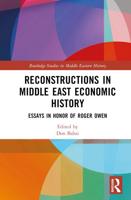Publisher's Synopsis
This book surveys the history of the German family in the nineteenth and twentieth centuries. The contributions deal with the influence of industrialisation on family life in town and country, with rural families and communities under the impact of social and economic change, and with the role and influence of the family in the lives of men and women in the newly-emerged working class.
Research on the history of the family had so far, at the point of this book's publication in 1981, concentrated on England and France; this book adds an important comparative dimension by extending the discussion into Central Europe and bringing fresh evidence and interpretation to bear on the wider debate about the effects of industrialisation on family structure and family life as a whole. The authors approach the subject from a variety of perspectives, including social anthropology, oral history, economic history and feminist studies.
This book is ideal for students of history, particularly the history of Germany.











